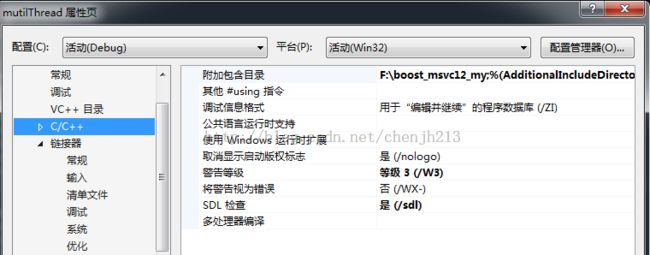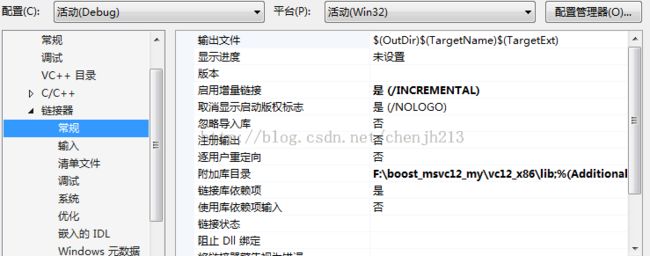- 梯度提升机 (Gradient Boosting Machines, GBM)
ALGORITHM LOL
boosting集成学习机器学习
梯度提升机(GradientBoostingMachines,GBM)通俗易懂算法梯度提升机(GradientBoostingMachines,GBM)是一种集成学习算法,主要用于回归和分类问题。GBM本质上是通过训练一系列简单的模型(通常是决策树),然后将这些模型组合起来,从而提高整体预测性能。基本步骤初始模型:首先,我们用一个简单的模型(如一个常数值)作为预测模型,记为F0(x)F_0(x)F
- 鸿蒙开发(NEXT/API 12)【应用传输体验反馈】 网络加速服务
移动开发技术栈
鸿蒙开发harmonyos网络华为openharmony鸿蒙移动开发鸿蒙系统
场景介绍当应用传输体验发生变化时,应用将传输体验和传输的业务类型信息通过实时反馈接口传输给系统网络业务模块,系统网络业务模块进行精细化调度,实现网络加速。例如:视频类App播放过程中卡顿,将卡顿信息上报后,NetworkBoostKit将信息反馈给系统网络加速模块,该模块会记录播放卡顿信息,并根据当前网络情况,启用网络加速能力。接口说明接口名描述reportQoe(appQoe:AppQoe):v
- 十大机器学习算法-梯度提升决策树(GBDT)
zjwreal
机器学习GBDT机器学习梯度提升提升树梯度提升决策树
简介梯度提升决策树(GBDT)由于准确率高、训练快速等优点,被广泛应用到分类、回归合排序问题中。该算法是一种additive树模型,每棵树学习之前additive树模型的残差。许多研究者相继提出XGBoost、LightGBM等,又进一步提升了GBDT的性能。基本思想提升树-BoostingTree以决策树为基函数的提升方法称为提升树,其决策树可以是分类树或者回归树。决策树模型可以表示为决策树的加
- AdaBoost算法(AdbBoost Algorithm)—有监督学习方法、非概率模型、判别模型、非线性模型、非参数化模型、批量学习
剑海风云
ArtificialIntelligence人工智能机器学习提升方法AdaBoost
定义输入:训练数据集T={(x1,y1),(x2,y2),⋯ ,(xN,yN)}T=\{(x_1,y_1),(x_2,y_2),\cdots,(x_N,y_N)\}T={(x1,y1),(x2,y2),⋯,(xN,yN)},其中,xi∈χ⊆Rn,yi∈y={−1,+1}x_i\in\chi\subseteqR^n,y_i\in{\tty}=\{-1,+1\}xi∈χ⊆Rn,yi∈y={−1,+1}
- cmake介绍(八)--cmake的高级特性
小蘑菇二号
cmake
目录1.自定义CMake模块和脚本自定义模块示例:创建自定义模块2.构建配置和目标多配置生成器示例:使用VisualStudio生成器定义多个构建目标示例:定义多个目标3.高级查找和配置灵活地查找包示例:查找和配置Boost库配置构建选项示例:配置构建选项4.生成自定义构建步骤添加自定义命令示例:添加自定义命令添加自定义目标示例:添加自定义目标5.跨平台和交叉编译支持不同平台示例:配置跨平台编译交
- 《机器学习》—— XGBoost(xgb.XGBClassifier) 分类器
张小生180
机器学习人工智能
文章目录一、XGBoost分类器的介绍二、XGBoost(xgb.XGBClassifier)分类器与随机森林分类器(RandomForestClassifier)的区别三、XGBoost(xgb.XGBClassifier)分类器代码使用示例一、XGBoost分类器的介绍XGBoost分类器是一种基于梯度提升决策树(GradientBoostingDecisionTree,GBDT)的集成学习算
- .NET Core —如何使用Redis缓存提高应用程序性能
weixin_26737625
redisjava缓存pythonmysql
Redisisaverypowerfuldistributedcachingengineandoffersverylowlatencykey-valuepaircaching.Ifusedintherightbusinesscontext,Rediscansignificantlyboostapplicationperformance.Inthisarticlewewilldoawalkthrou
- Python处理大数据,如何提高处理速度
RS&
#pythonpython大数据pandas
Python处理大数据,如何提高处理速度?一、利用大数据分析工具Dask:https://dask.org/Dask简介:Dask支持Pandas的DataFrame和NumpyArray的数据结构,并且既可在本地计算机上运行,也可以扩展到在集群上运行。Dask可支持pandas、Numpy、Sklearn、XGBoost、XArray、RAPIDS等等。原理及使用方法:https://blog.
- 2024 数学建模国赛 C 题模型及算法(无废话版)
不染53
数学建模数学建模算法python
目录写在开始需要掌握的数学模型/算法评价体系/评价类问题时间序列处理数据降维聚类问题(无监督)分类问题(有监督)集成学习(Bagging/Boosting)回归问题关联分析统计学方法/统计模型智能优化算法需要掌握的Python专业库需要掌握的软件/工具写在开始本人获2023年数学建模国赛C题国家级一等奖,备赛期间专攻C题。本文总结了在备赛期间总结的模型和算法,足以应对90%国赛C题中涉及到的问题。
- 英伟达A100算力卡性能及应用
算力资源比较多
算力英伟达大模型人工智能gpu算力语言模型大数据推荐算法
英伟达A100是一款高性能计算卡,基于英伟达Ampere架构,专为数据中心和高性能计算领域设计。以下是关于A100的性能参数及应用的详细介绍:性能参数架构与制程:架构:Ampere制程:7纳米核心与频率:CUDA核心数:6912个Tensor核心数:432个Boost时钟频率:1.41GHz性能:FP32性能:19.5TFLOPSFP64性能:9.7TFLOPSTensor性能:624.6TFLO
- 2024年Python最新Python爬虫教程-新浪微博分布式爬虫分享(2)
2401_84584682
程序员python爬虫新浪微博
开发语言:Python2.7开发环境:64位Windows8系统,4G内存,i7-3612QM处理器。数据库:MongoDB3.2.0、Redis3.0.501(Python编辑器:Pycharm;MongoDB管理工具:MongoBooster;Redis管理工具:RedisStudio)爬虫框架使用Scrapy,使用scrapy_redis和Redis实现分布式。分布式中有一台机充当Maste
- XGBoost调参demo(Python)
妄念驱动
机器学习算法python机器学习XGBoostpython
XGBoost我们用的是保险公司的一份数据#各种库importpandasaspdimportnumpyasnpimportmatplotlib.pyplotaspltfromsklearn.linear_modelimportLogisticRegressionfromsklearn.ensembleimportRandomForestClassifierfromsklearn.metricsi
- 【python】Python实现XGBoost算法的详细理论讲解与应用实战
景天科技苑
python轻松入门基础语法到高阶实战教学python算法开发语言XGBoost算法XGBoostpython实现XGBoost人工智能
✨✨欢迎大家来到景天科技苑✨✨养成好习惯,先赞后看哦~作者简介:景天科技苑《头衔》:大厂架构师,华为云开发者社区专家博主,阿里云开发者社区专家博主,CSDN全栈领域优质创作者,掘金优秀博主,51CTO博客专家等。《博客》:Python全栈,PyQt5和Tkinter桌面开发,小程序开发,人工智能,js逆向,App逆向,网络系统安全,数据分析,Django,fastapi,flask等框架,云原生K
- VScode C++ 一键注释
东半球第一攻城狮
vscodec++ide
1.注释:首选选中要注释的部分;intmain(){usingnamespacestd;cout>weight;stringgain="A10%increaseraises";stringwt=boost::lexical_cast(weight);gain=gain+wt+"to";//stringoperator()weight=1.1*weight;gain=gain+boost::lexi
- mac版QQ聊天信息备份与导出方法
iHTCboy
前言最近,我司终于更换新电脑的计划落实啦!!!Macmini3.0GHz双核IntelCorei7处理器(TurboBoost高达3.5GHz)16GB1600MHzLPDDR3SDRAM1TB融合硬盘IntelIrisGraphics图形处理器非常值的可贺!然而,就是新电脑,一切都是新!一切都是白!!非常多工具的数据需要迁移,开发环境需要配置,最近也打算总结一下新电脑配置方面的文章,作为自己备份
- 基于Python的机器学习系列(18):梯度提升分类(Gradient Boosting Classification)
会飞的Anthony
信息系统机器学习人工智能机器学习python分类
简介梯度提升(GradientBoosting)是一种集成学习方法,通过逐步添加新的预测器来改进模型。在回归问题中,我们使用梯度来最小化残差。在分类问题中,我们可以利用梯度提升来进行二分类或多分类任务。与回归不同,分类问题需要使用如softmax这样的概率模型来处理类别标签。梯度提升分类的工作原理梯度提升分类的基本步骤与回归类似,但在分类任务中,我们使用概率模型来处理预测结果:初始化模型:选择一个
- 基于Python的机器学习系列(17):梯度提升回归(Gradient Boosting Regression)
会飞的Anthony
人工智能信息系统机器学习机器学习python回归
简介梯度提升(GradientBoosting)是一种强大的集成学习方法,类似于AdaBoost,但与其不同的是,梯度提升通过在每一步添加新的预测器来减少前一步预测器的残差。这种方法通过逐步改进模型,能够有效提高预测准确性。梯度提升回归的工作原理在梯度提升回归中,我们逐步添加预测器来修正模型的残差。以下是梯度提升的基本步骤:初始化模型:选择一个初始预测器h0(x),计算该预测器的预测值。计算残差:
- 基于Python的机器学习系列(16):扩展 - AdaBoost
会飞的Anthony
信息系统机器学习人工智能python机器学习开发语言
简介在本篇中,我们将扩展之前的AdaBoost算法实现,深入探索其细节并进行一些修改。我们将重点修复代码中的潜在问题,并对AdaBoost的实现进行一些调整,以提高其准确性和可用性。1.修复Alpha计算中的问题在AdaBoost中,如果分类器的错误率e为0,则计算出的权重α将是未定义的。为了解决这个问题,我们可以在计算过程中向分母中添加一个非常小的值,以避免除零错误。2.调整学习率sklearn
- 基于CNN-BiLSTM-Adaboost风电功率预测研究(Matlab代码实现)
创新优化代码学习
cnnmatlab人工智能
欢迎来到本博客❤️❤️博主优势:博客内容尽量做到思维缜密,逻辑清晰,为了方便读者。⛳️座右铭:行百里者,半于九十。本文目录如下:目录⛳️赠与读者1概述一、研究背景与意义二、研究方法1.数据准备与预处理2.CNN特征提取3.BiLSTM序列建模4.Adaboost集成学习5.模型训练与评估三、研究优势四、未来展望2运行结果3参考文献4Matlab代码、数据⛳️赠与读者做科研,涉及到一个深在的思想系
- SD3337C 恒流Boost DC/DC转换器的白色LED驱动器芯片IC
奥科迪科技13798477800
单片机嵌入式硬件
一般描述SD3337C是一款升压型DC/DC转换器,具有恒定电流,可驱动白色LED或类似器件。该器件可以从锂离子电池驱动多达八个串联的LED。LED电流由外部电阻器(RsET)设置,并由反馈(FB)电压(典型值:200mV)直接调节,该电压跨接在外部电阻器RsET上。为了确保操作过程中的最大安全性,该输出具有集成的过压保护功能,可在某些故障条件下防止设备损坏。OVP电压可以通过两个外部电阻器进行编
- hiphop-php【未能成功编译YII】
zhengdl126
linux运维php运维git
==================测试环境redhat6.064bitcmake2.6istheminimumversiong++/gcc4.3istheminimumversionBoost1.37istheminimumversionlibicu4.2istheminimumversiontbbIntel'sThreadBuildingBlocks===64bit====https://gi
- 【KELM回归预测】基于麻雀算法优化核极限学习SSA-KELM-Adaboost实现风电回归预测附matlab代码
天天酷科研
粉丝福利算法回归学习SSA-KELM-Ada
以下是使用麻雀算法优化核极限学习机(SSA-KELM)和Adaboost算法实现风电回归预测的MATLAB代码示例:matlab复制%导入风电数据load(‘wind_data.mat’);%假设数据存储在wind_data.mat文件中X=wind_data(:,1:end-1);%输入特征Y=wind_data(:,end);%输出标签%数据归一化X=normalize(X,‘range’);
- ZCC5429 异步升压芯片
ZCWC123
社交电子
一、产品综述ZCC5429芯片是一款自动调频、最高600KHz工作频率、高效率、宽输入电压范围的电流模式异步升压(BOOST)芯片,且可调输入限流功能。用户可灵活地通过外部补偿建立动态环路,获得在所有条件下最优瞬态性能。ZCC5429芯片还包括欠压锁存,过流保护和过温保护,以防止在输出过载时产生损害。ZCC5429采用ESOP8小型封装,外围电路简单,功率管外置,可根据实际使用情况,实现更宽功率范
- ZCC5429 异步升压芯片
ZCWC123
社交电子
一、产品综述ZCC5429芯片是一款自动调频、最高600KHz工作频率、高效率、宽输入电压范围的电流模式异步升压(BOOST)芯片,且可调输入限流功能。用户可灵活地通过外部补偿建立动态环路,获得在所有条件下最优瞬态性能。ZCC5429芯片还包括欠压锁存,过流保护和过温保护,以防止在输出过载时产生损害。ZCC5429采用ESOP8小型封装,外围电路简单,功率管外置,可根据实际使用情况,实现更宽功率范
- ZCC5429-宽输入电压异步升压芯
HPT_Lt
嵌入式硬件
一、产品综述ZCC5429芯片是一款自动调频、最高600KHz工作频率、高效率、宽输入电压范围的电流模式异步升压(BOOST)芯片,且可调输入限流功能。用户可灵活地通过外部补偿建立动态环路,获得在所有条件下最优瞬态性能。ZCC5429芯片还包括欠压锁存,过流保护和过温保护,以防止在输出过载时产生损害。ZCC5429采用ESOP8小型封装,外围电路简单,功率管外置,可根据实际使用情况,实现更宽功率范
- 3.0 V-22V 宽输入电压,高效率异步升压芯片-ZCC5429
HPT_Lt
嵌入式硬件
一、产品综述ZCC5429芯片是一款自动调频、最高600KHz工作频率、高效率、宽输入电压范围的电流模式异步升压(BOOST)芯片,且可调输入限流功能。用户可灵活地通过外部补偿建立动态环路,获得在所有条件下最优瞬态性能。ZCC5429芯片还包括欠压锁存,过流保护和过温保护,以防止在输出过载时产生损害。ZCC5429采用ESOP8小型封装,外围电路简单,功率管外置,可根据实际使用情况,实现更宽功率范
- 每天一个数据分析题(五百零五)- 提升方法
跟着紫枫学姐学CDA
数据分析题库数据分析
提升方法(Boosting),是一种可以用来减小监督式学习中偏差的机器学习算法。基于Boosting的集成学习,其代表算法不包括?A.AdaboostB.GBDTC.XGBOOSTD.随机森林数据分析认证考试介绍:点击进入题目来源于CDA模拟题库点击此处获取答案数据分析专项练习题库内容涵盖Python,SQL,统计学,数据分析理论,深度学习,可视化,机器学习,Spark八个方向的专项练习题库,数据
- 每天一个数据分析题(五百零六)- 装袋方法
跟着紫枫学姐学CDA
数据分析数据挖掘
装袋方法(bagging)也叫做bootstrapaggregating,是在原始数据集有放回地重采样S次后得到新数据集的一种技术,其代表算法有?A.AdaboostB.GBDTC.XGBOOSTD.随机森林数据分析认证考试介绍:点击进入题目来源于CDA模拟题库点击此处获取答案数据分析专项练习题库内容涵盖Python,SQL,统计学,数据分析理论,深度学习,可视化,机器学习,Spark八个方向的专
- 随机森林(Random Forest)VS 提升树(Boosting Trees)
高大黑白涂鸦
随机森林boosting算法机器学习人工智能
随机森林(RandomForest)和提升树(BoostingTrees)都是常见的机器学习算法,它们都基于决策树,但使用的策略和目标不同。随机森林(RandomForest)通俗的类比:想象你有一个班级里的多位老师(决策树),你让他们每个人都独立地给出意见(预测)。每个老师的意见可能不完全一致,因为他们对问题的理解和方法不同。然后,你把所有老师的意见汇总,得到一个“班级意见”的结果。优点:减少过
- 英伟达A100、A800、H100、H800、V100以及RTX 4090的详细性能参数对比
算力资源比较多
算力英伟达H100gpu算力大数据人工智能语言模型
英伟达A100、A800、H100、H800、V100以及RTX4090的详细性能参数对比:英伟达A100架构与制程:架构:Ampere制程:7纳米核心与频率:CUDA核心数:6912个Tensor核心数:432个Boost时钟频率:1.41GHz性能:FP32性能:19.5TFLOPSFP64性能:9.7TFLOPSTensor性能:624.6TFLOPS内存:显存容量:提供40GB和80GBH
- LeetCode[位运算] - #137 Single Number II
Cwind
javaAlgorithmLeetCode题解位运算
原题链接:#137 Single Number II
要求:
给定一个整型数组,其中除了一个元素之外,每个元素都出现三次。找出这个元素
注意:算法的时间复杂度应为O(n),最好不使用额外的内存空间
难度:中等
分析:
与#136类似,都是考察位运算。不过出现两次的可以使用异或运算的特性 n XOR n = 0, n XOR 0 = n,即某一
- 《JavaScript语言精粹》笔记
aijuans
JavaScript
0、JavaScript的简单数据类型包括数字、字符创、布尔值(true/false)、null和undefined值,其它值都是对象。
1、JavaScript只有一个数字类型,它在内部被表示为64位的浮点数。没有分离出整数,所以1和1.0的值相同。
2、NaN是一个数值,表示一个不能产生正常结果的运算结果。NaN不等于任何值,包括它本身。可以用函数isNaN(number)检测NaN,但是
- 你应该更新的Java知识之常用程序库
Kai_Ge
java
在很多人眼中,Java 已经是一门垂垂老矣的语言,但并不妨碍 Java 世界依然在前进。如果你曾离开 Java,云游于其它世界,或是每日只在遗留代码中挣扎,或许是时候抬起头,看看老 Java 中的新东西。
Guava
Guava[gwɑ:və],一句话,只要你做Java项目,就应该用Guava(Github)。
guava 是 Google 出品的一套 Java 核心库,在我看来,它甚至应该
- HttpClient
120153216
httpclient
/**
* 可以传对象的请求转发,对象已流形式放入HTTP中
*/
public static Object doPost(Map<String,Object> parmMap,String url)
{
Object object = null;
HttpClient hc = new HttpClient();
String fullURL
- Django model字段类型清单
2002wmj
django
Django 通过 models 实现数据库的创建、修改、删除等操作,本文为模型中一般常用的类型的清单,便于查询和使用: AutoField:一个自动递增的整型字段,添加记录时它会自动增长。你通常不需要直接使用这个字段;如果你不指定主键的话,系统会自动添加一个主键字段到你的model。(参阅自动主键字段) BooleanField:布尔字段,管理工具里会自动将其描述为checkbox。 Cha
- 在SQLSERVER中查找消耗CPU最多的SQL
357029540
SQL Server
返回消耗CPU数目最多的10条语句
SELECT TOP 10
total_worker_time/execution_count AS avg_cpu_cost, plan_handle,
execution_count,
(SELECT SUBSTRING(text, statement_start_of
- Myeclipse项目无法部署,Undefined exploded archive location
7454103
eclipseMyEclipse
做个备忘!
错误信息为:
Undefined exploded archive location
原因:
在工程转移过程中,导致工程的配置文件出错;
解决方法:
- GMT时间格式转换
adminjun
GMT时间转换
普通的时间转换问题我这里就不再罗嗦了,我想大家应该都会那种低级的转换问题吧,现在我向大家总结一下如何转换GMT时间格式,这种格式的转换方法网上还不是很多,所以有必要总结一下,也算给有需要的朋友一个小小的帮助啦。
1、可以使用
SimpleDateFormat SimpleDateFormat
EEE-三位星期
d-天
MMM-月
yyyy-四位年
- Oracle数据库新装连接串问题
aijuans
oracle数据库
割接新装了数据库,客户端登陆无问题,apache/cgi-bin程序有问题,sqlnet.log日志如下:
Fatal NI connect error 12170.
VERSION INFORMATION: TNS for Linux: Version 10.2.0.4.0 - Product
- 回顾java数组复制
ayaoxinchao
java数组
在写这篇文章之前,也看了一些别人写的,基本上都是大同小异。文章是对java数组复制基础知识的回顾,算是作为学习笔记,供以后自己翻阅。首先,简单想一下这个问题:为什么要复制数组?我的个人理解:在我们在利用一个数组时,在每一次使用,我们都希望它的值是初始值。这时我们就要对数组进行复制,以达到原始数组值的安全性。java数组复制大致分为3种方式:①for循环方式 ②clone方式 ③arrayCopy方
- java web会话监听并使用spring注入
bewithme
Java Web
在java web应用中,当你想在建立会话或移除会话时,让系统做某些事情,比如说,统计在线用户,每当有用户登录时,或退出时,那么可以用下面这个监听器来监听。
import java.util.ArrayList;
import java.ut
- NoSQL数据库之Redis数据库管理(Redis的常用命令及高级应用)
bijian1013
redis数据库NoSQL
一 .Redis常用命令
Redis提供了丰富的命令对数据库和各种数据库类型进行操作,这些命令可以在Linux终端使用。
a.键值相关命令
b.服务器相关命令
1.键值相关命令
&
- java枚举序列化问题
bingyingao
java枚举序列化
对象在网络中传输离不开序列化和反序列化。而如果序列化的对象中有枚举值就要特别注意一些发布兼容问题:
1.加一个枚举值
新机器代码读分布式缓存中老对象,没有问题,不会抛异常。
老机器代码读分布式缓存中新对像,反序列化会中断,所以在所有机器发布完成之前要避免出现新对象,或者提前让老机器拥有新增枚举的jar。
2.删一个枚举值
新机器代码读分布式缓存中老对象,反序列
- 【Spark七十八】Spark Kyro序列化
bit1129
spark
当使用SparkContext的saveAsObjectFile方法将对象序列化到文件,以及通过objectFile方法将对象从文件反序列出来的时候,Spark默认使用Java的序列化以及反序列化机制,通常情况下,这种序列化机制是很低效的,Spark支持使用Kyro作为对象的序列化和反序列化机制,序列化的速度比java更快,但是使用Kyro时要注意,Kyro目前还是有些bug。
Spark
- Hybridizing OO and Functional Design
bookjovi
erlanghaskell
推荐博文:
Tell Above, and Ask Below - Hybridizing OO and Functional Design
文章中把OO和FP讲的深入透彻,里面把smalltalk和haskell作为典型的两种编程范式代表语言,此点本人极为同意,smalltalk可以说是最能体现OO设计的面向对象语言,smalltalk的作者Alan kay也是OO的最早先驱,
- Java-Collections Framework学习与总结-HashMap
BrokenDreams
Collections
开发中常常会用到这样一种数据结构,根据一个关键字,找到所需的信息。这个过程有点像查字典,拿到一个key,去字典表中查找对应的value。Java1.0版本提供了这样的类java.util.Dictionary(抽象类),基本上支持字典表的操作。后来引入了Map接口,更好的描述的这种数据结构。
&nb
- 读《研磨设计模式》-代码笔记-职责链模式-Chain Of Responsibility
bylijinnan
java设计模式
声明: 本文只为方便我个人查阅和理解,详细的分析以及源代码请移步 原作者的博客http://chjavach.iteye.com/
/**
* 业务逻辑:项目经理只能处理500以下的费用申请,部门经理是1000,总经理不设限。简单起见,只同意“Tom”的申请
* bylijinnan
*/
abstract class Handler {
/*
- Android中启动外部程序
cherishLC
android
1、启动外部程序
引用自:
http://blog.csdn.net/linxcool/article/details/7692374
//方法一
Intent intent=new Intent();
//包名 包名+类名(全路径)
intent.setClassName("com.linxcool", "com.linxcool.PlaneActi
- summary_keep_rate
coollyj
SUM
BEGIN
/*DECLARE minDate varchar(20) ;
DECLARE maxDate varchar(20) ;*/
DECLARE stkDate varchar(20) ;
DECLARE done int default -1;
/* 游标中 注册服务器地址 */
DE
- hadoop hdfs 添加数据目录出错
daizj
hadoophdfs扩容
由于原来配置的hadoop data目录快要用满了,故准备修改配置文件增加数据目录,以便扩容,但由于疏忽,把core-site.xml, hdfs-site.xml配置文件dfs.datanode.data.dir 配置项增加了配置目录,但未创建实际目录,重启datanode服务时,报如下错误:
2014-11-18 08:51:39,128 WARN org.apache.hadoop.h
- grep 目录级联查找
dongwei_6688
grep
在Mac或者Linux下使用grep进行文件内容查找时,如果给定的目标搜索路径是当前目录,那么它默认只搜索当前目录下的文件,而不会搜索其下面子目录中的文件内容,如果想级联搜索下级目录,需要使用一个“-r”参数:
grep -n -r "GET" .
上面的命令将会找出当前目录“.”及当前目录中所有下级目录
- yii 修改模块使用的布局文件
dcj3sjt126com
yiilayouts
方法一:yii模块默认使用系统当前的主题布局文件,如果在主配置文件中配置了主题比如: 'theme'=>'mythm', 那么yii的模块就使用 protected/themes/mythm/views/layouts 下的布局文件; 如果未配置主题,那么 yii的模块就使用 protected/views/layouts 下的布局文件, 总之默认不是使用自身目录 pr
- 设计模式之单例模式
come_for_dream
设计模式单例模式懒汉式饿汉式双重检验锁失败无序写入
今天该来的面试还没来,这个店估计不会来电话了,安静下来写写博客也不错,没事翻了翻小易哥的博客甚至与大牛们之间的差距,基础知识不扎实建起来的楼再高也只能是危楼罢了,陈下心回归基础把以前学过的东西总结一下。
*********************************
- 8、数组
豆豆咖啡
二维数组数组一维数组
一、概念
数组是同一种类型数据的集合。其实数组就是一个容器。
二、好处
可以自动给数组中的元素从0开始编号,方便操作这些元素
三、格式
//一维数组
1,元素类型[] 变量名 = new 元素类型[元素的个数]
int[] arr =
- Decode Ways
hcx2013
decode
A message containing letters from A-Z is being encoded to numbers using the following mapping:
'A' -> 1
'B' -> 2
...
'Z' -> 26
Given an encoded message containing digits, det
- Spring4.1新特性——异步调度和事件机制的异常处理
jinnianshilongnian
spring 4.1
目录
Spring4.1新特性——综述
Spring4.1新特性——Spring核心部分及其他
Spring4.1新特性——Spring缓存框架增强
Spring4.1新特性——异步调用和事件机制的异常处理
Spring4.1新特性——数据库集成测试脚本初始化
Spring4.1新特性——Spring MVC增强
Spring4.1新特性——页面自动化测试框架Spring MVC T
- squid3(高命中率)缓存服务器配置
liyonghui160com
系统:centos 5.x
需要的软件:squid-3.0.STABLE25.tar.gz
1.下载squid
wget http://www.squid-cache.org/Versions/v3/3.0/squid-3.0.STABLE25.tar.gz
tar zxf squid-3.0.STABLE25.tar.gz &&
- 避免Java应用中NullPointerException的技巧和最佳实践
pda158
java
1) 从已知的String对象中调用equals()和equalsIgnoreCase()方法,而非未知对象。 总是从已知的非空String对象中调用equals()方法。因为equals()方法是对称的,调用a.equals(b)和调用b.equals(a)是完全相同的,这也是为什么程序员对于对象a和b这么不上心。如果调用者是空指针,这种调用可能导致一个空指针异常
Object unk
- 如何在Swift语言中创建http请求
shoothao
httpswift
概述:本文通过实例从同步和异步两种方式上回答了”如何在Swift语言中创建http请求“的问题。
如果你对Objective-C比较了解的话,对于如何创建http请求你一定驾轻就熟了,而新语言Swift与其相比只有语法上的区别。但是,对才接触到这个崭新平台的初学者来说,他们仍然想知道“如何在Swift语言中创建http请求?”。
在这里,我将作出一些建议来回答上述问题。常见的
- Spring事务的传播方式
uule
spring事务
传播方式:
新建事务
required
required_new - 挂起当前
非事务方式运行
supports
&nbs

